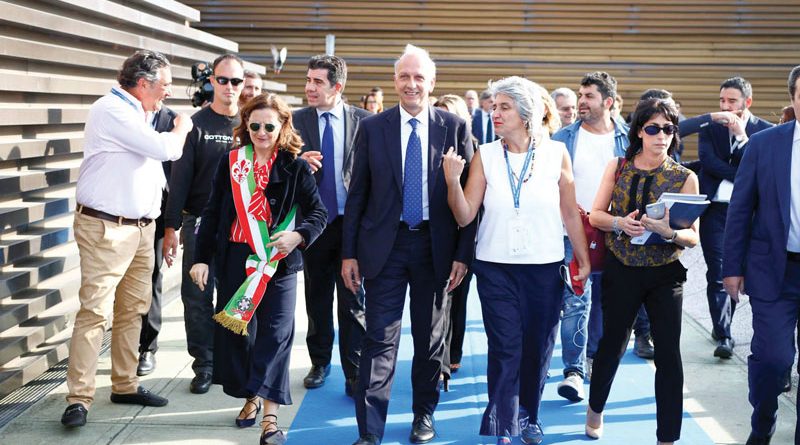Promoters of a New Approach, from Exhibitions to Schools
The third edition of Didacta Italia, a primary exhibition dealing with school, will take place in Florence from 9th to 11th October. Since the very first edition, Anna Paola Concia has been the coordinator of the Organizing Committee. We asked her some questions about the outcome of the event and about the project, shared with AIdAM and SPS Italia, aiming to further connect businesses and schools. In order to fill a gap that may jeopardize the whole country’s competitiveness.
by Leonardo Albino
The 3rd edition of Didacta Italia is scheduled in October. What is the outcome of the event and what are your expectations?
This year we can say that we will grow up and close the “start-up” phase. We are very happy with the response we have had so far from both companies of the school supply chain and teachers. Didacta Italia has the ambition to become an actual point of reference for the school of the future, as far as innovation in both companies and teaching is concerned.
The project signed with AIdAM and the SPS Italia fair is certainly ambitious. What are the goals of Didacta Italia?
Personally, I am very proud of the fact that we were able to sign an agreement. I believe, in fact, that these twinning arrangements allow us to deal more professionally with the relationship between school and work. The training project for teachers of ITS and ITIS (see box, ed) provides for a part of the course to be done in Parma and a part in Florence.
In such a scenario, I think that trade associations such as AIdAM have a crucial role to play. To refer to a country that is often taken as a model, Germany, let’s think that the registers of the so-called dual training system are managed by the chambers of commerce, within which are precisely the trade associations. It is an essential overseeing role between schools and companies that in Italy we have not yet fully understood.
What needs to be done in order to have a more integrated professional training system, similar to the German one, and what concrete benefits might it generate?
The creation of new skills in the digital age is an absolute urgency. Otherwise we risk being cut off from the global market. In Italy, companies have not yet fully understood the advantage of adequate training of human resources and, on the other hand, the world of education is still struggling to open up to the world of work. In Germany, the specialisation of human resources in companies is very high and youth unemployment is quite low, on the other hand.
In your opinion, are the technical schools in Italy suffering from an image gap that has no real basis and that absolutely must be filled?
Of course. In Italy there is a real social stigma towards technical schools, and this is a big mistake. Let’s consider that, in Germany, even important public officers come from the dual training system.
Such an issue can be faced by promoting and encouraging experiences like those we are doing with AIdAM and the SPS fair, also by training teachers on the new skills that the digitalized industry requires. Didacta really wants to be a reference point for building a brand-new approach.

